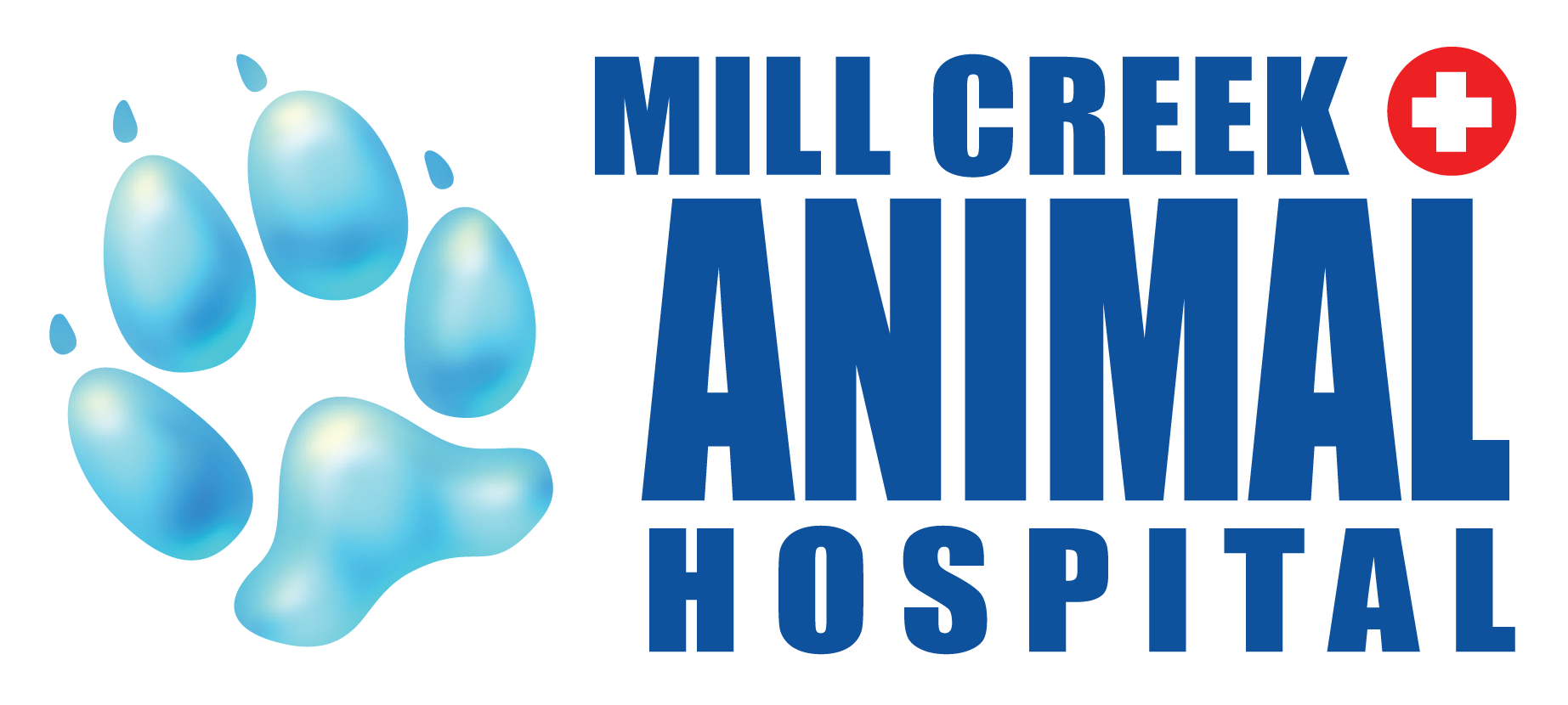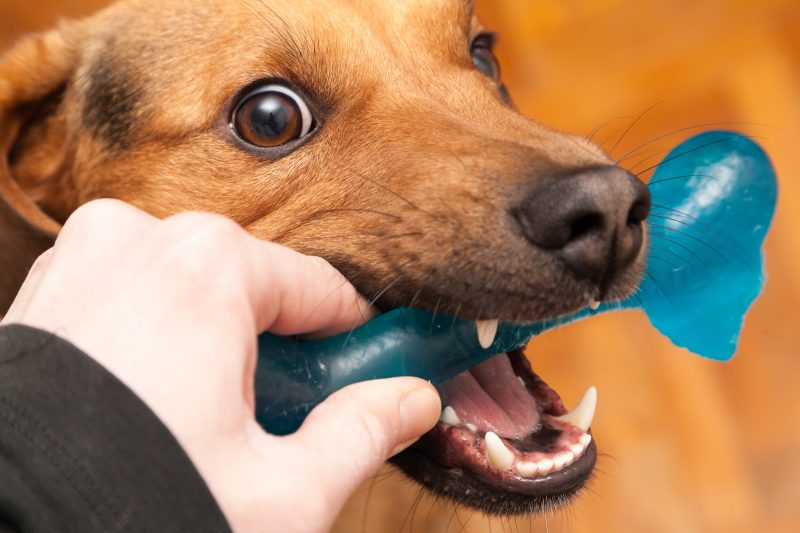Caring for your pet includes caring for their mouth. There are several steps that you can take in an effort to keep your pet’s mouth as healthy as possible.
Pet owners often ask what food to transition their pet onto when they are coming off of kitten or puppy food. If a pet does not have any underlying health concerns, a dental diet is a suitable adult maintenance diet. Dental diet kibble is designed to be a larger kibble so that your pet has to chew it more, which results in more scrubbing action and is more likely to remove plaque. Plaque is the beginning of the chain leading to dental disease. Feeding a dental diet is a very easy step to take as it requires no extra time, you have to feed your pet daily anyway so it might as well be a dental food!
Dental chews are another product that promotes dental health. Some chews contain enzymes that eliminate bacteria that are the precursor to plaque. Chews are also a low-effort step you can take for your pet. Another benefit of dental chews is that they keep your pet occupied for a few minutes and are a great tool for pets that like to chew.
Water additives are great for pets that are not picky when it comes to their water. We carry a water additive that has an all-natural, no preservative ingredient list. You simply make up a dilution of water and the additive can use the dilution for up to two weeks. Again, water is something you give to your pet daily so the only extra effort water additives require is the minute it takes to measure the dilution.
Brushing teeth is one of the most effective ways to remove plaque from teeth. However, to really be beneficial, it must be done daily as it is with ourselves. It is best to introduce brushing with younger pets so that they get used to it right from the start. That is not to say that older pets cannot be trained to have their teeth brushed, it just might take a little more time to introduce them to it. It is important to always use a pet-safe toothpaste, and never use human toothpaste as the fluoride can be harmful. Toothpaste come in tasty flavours such as chicken and beef, so some pets even enjoy their teeth being brushed!
Annual exams are another important tool in ensuring your pet’s mouth is healthy. The vet will look for gingivitis (inflammation of the gums), tartar build up (hardened plaque), loose teeth, and any other visible concerns. It may be recommended for your pet to have a dental cleaning, as once plaque has hardened, dental products cannot remove it and it must be removed with special tools while under anesthetic.
The golden standard would be to use all tools in conjunction with each other- feeding a dental diet, using a water additive, giving dental chews, and brushing daily. Life is busy and it can be hard to stay on track with your pet’s dental health, but if you incorporate what you can into your daily routine, your pet will thank you in the long run!
Written Liz Espejo, RAHT



